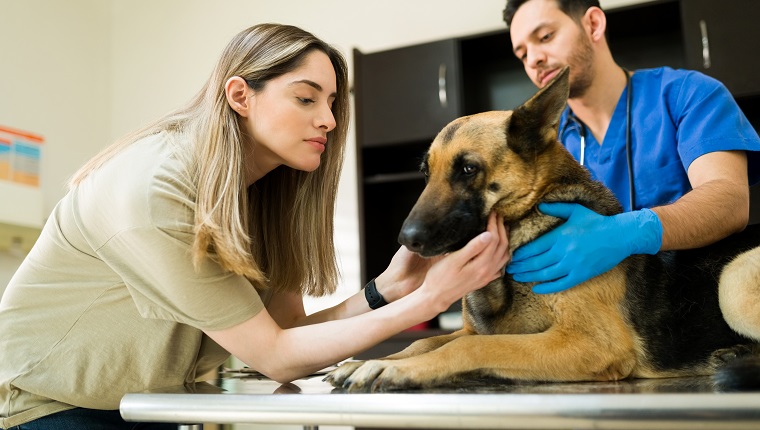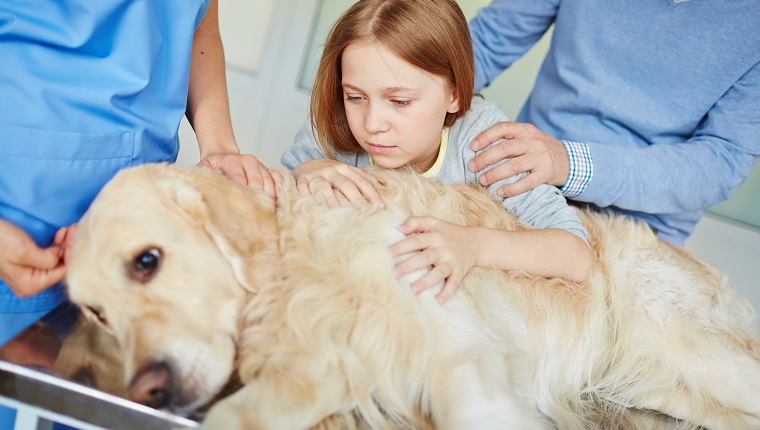Abnormal protein production in dogs is a condition that occurs when plasma cells start producing abnormal proteins, known as M-components. This often comes about due to plasma cell tumors.
The condition, also known by the medical term paraproteinemia, is more likely to affect middle-aged and senior dogs rather than young dogs.
If you see signs that your dog might be suffering from this condition, then you must consult your veterinarian for a proper diagnosis and course of treatment. Here’s what you should know about the symptoms, causes, and treatments of abnormal protein production in dogs.
Symptoms Of Abnormal Protein Production In Dogs
Abnormal protein production in dogs can produce a number of different symptoms. Some of the most common include:
- Becoming lethargic
- Seeming to be weaker than usual
- Suffering from nose bleeds
- Developing a thirst
- Urinating more
- Seizures
Causes Of Abnormal Protein Production In Dogs

The cause of abnormal protein production in dogs can be hard to determine, and the condition is often referred to as being idiopathic, meaning the cause is unknown.
Some of the causes that vets have suggested include:
- Inheriting the condition
- A viral infection
- Carcinogen exposure
- Autoimmune issues
Treatments For Abnormal Protein Production In Dogs
If you think that your dog might be suffering from abnormal protein production, your veterinarian will want to conduct a full physical examination.
They’ll also want to ask about any recent situations where your dog might have become infected or been exposed to carcinogens, like paint and solvents. Vets will usually suggest blood work too, along with X-rays if needed.
If your vet confirms their diagnosis, they might offer your dog supportive care. This could include the use of IV drips or a blood transfusion.
Your vet may prescribe antibiotics to lessen the chances of picking up an infection during the process. As ever, if your vet prescribes a course of medicine for your dog, it’s vital that you follow the dosage and frequency instructions precisely and complete the full course of medicine, even if your dog seems to have recovered.
In some cases, dogs may need chemotherapy.
Has your dog ever suffered from abnormal protein production? How did your vet help your dog recover? Tell us all about it in the comments below!









